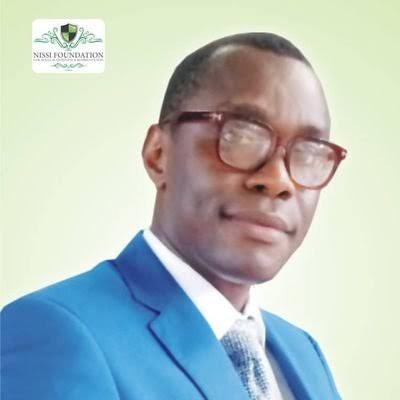“With restructuring, the cries of marginalization that have given rise to the issue of ethnic conflicts will be addressed with policies and initiatives tailored to the unique needs of each ethnic group and state brought to the fore. This, consequently, will help foster unity and also put paid to the agitations for separation as we have seen most recently from the Yoruba nation and the long-standing Indigenous People of Biafra (IPOB). Each ethnic group get to receive equal treatment and a true sense of belonging to the nation through policies and initiatives that speak to their very need and address their pressing challenges to the realization of a better life for their people.”
A consistent phrase in the Nigerian socio-political space has been the word ‘restructuring’. But the number of times it has been mentioned is tantamount to the number of times it has been rebuffed with slimmer hopes of it ever being put to practice.
Far from where we want to be or better, where we ought to be is the present narrative of Nigeria with many leaders having come and gone but left much to be desired upon the long-standing system that has been questioned for its capacity to deliver the best results for all and sundry.
This has given much support to the stifled cries for restructuring, with proponents strongly advocating that it be given a chance to see what it holds for the country with several administrations unable to deliver having tried so many administrative ingenuities but failed.
Fortunately for the country, she currently has a president who has been at the vanguard of the restructuring notion, and has several times since assuming office indicated his interest in implementing the restructuring of the country, even though the question of when is what no one can answer.
However, it is a good thing that calls for the implementation of restructuring are not slowing down but being drummed out ceaselessly regardless of the number of times it has been stifled and rebuffed in the past.
With restructuring, the cries of marginalization that have given rise to the issue of ethnic conflicts will be addressed with policies and initiatives tailored to the unique needs of each ethnic group and state brought to the fore. This, consequently, will help foster unity and also put paid to the agitations for separation as we have seen most recently from the Yoruba nation and the long-standing Indigenous People of Biafra (IPOB). Each ethnic group get to receive equal treatment and a true sense of belonging to the nation through policies and initiatives that speak to their very need and address their pressing challenges to the realization of a better life for their people.
There is also that of Nigeria’s centralized governance structure that has often been criticized for its inefficiency, bureaucracy, and susceptibility to corruption. Restructuring can streamline governance processes by bringing decision-making closer to the people and making elected officials more directly accountable to their constituents. By empowering local governments and promoting transparency and accountability, restructuring can improve the delivery of public services, reduce corruption, and enhance overall governance effectiveness.
The scope of restructuring also encapsulates the economy. Nigeria’s economy is heavily reliant on oil exports, leaving it vulnerable to global price fluctuations and hindering diversification efforts. Restructuring can empower states to develop and implement their economic policies tailored to their comparative advantages and local resources. By promoting economic diversification into sectors such as agriculture, manufacturing, and technology, restructuring can stimulate job creation, reduce poverty, and build resilience against external shocks, ultimately contributing to sustained and inclusive economic growth.
The gains of restructuring far outweighs the loss and the only way we can get to enjoy its gains is by indeed restructuring.
James 1:22: But be doers of the word, and not hearers only, deceiving yourselves.
Meanwhile, I am delighted to inform you that come October, 1, 2024, we at NISSI Safety Management Institute: An Institute famous for Peace Leadership will be celebrating our 20th Anniversary.
To this end is our campaign to spread the education of peace leadership to both the old as young, women and children in various places from corporate organisations, to political organizations, worship centers, educational institutions, markets and communities.
It is in our belief that the more educated the people are in respect to peace leadership, the more peaceful our country will become.
So this is a call-to-action, to hop on our Peace campaign train, to arm yourself, your friends, your colleagues, your employees, your congregation with contemporary peace leadership knowledge that makes for a happier and more fulfilled life, personally and collectively.
Kindly call or send a message on Whatsapp to +2347065828892, to be a beneficiary of this.
Prof. Ofonime Emmanuel Bassey is a Leadership, Conflict, Peace and Security Management Coach with decades of experience in the practice and promotion of Law Enforcement, Peace and Security through the Nigeria Police and the United Nations.
He has served and interacted at the top level management of the Nigeria Police as well as internationally as a United Nation’s Monitor/Mentor in Kosovo, Europe.
Ofonime is a certified United Nation’s Trainer, and currently a Professor of Leadership, Peace and Conflict Resolution with ICOF University, USA/Zambia and a Professor of Peace Education with Charismatic International University, Cameroon.
With his marks well-established in Peace Leadership both in Nigeria and Africa, he is the President, NISSI Safety Management Institute: An Institute famous for Peace Leadership.
Presently, he is spearheading a campaign tagged “The Next Peace Leaders”, a campaign that is billed to run from 2022-2030 with a target of training 37,000 young peace leaders.
For leadership, conflict, peace and security consultations and trainings, reach him via:
Facebook: Dr. O.E Bassey
LinkedIn: Dr. O.E Bassey
X: Dr. O.E Bassey
WhatsApp: +2347065828892
Mail: emmanuelbassey@gmail.com
Share your story or advertise with us: Whatsapp: +2347068606071 Email: info@newspotng.com











